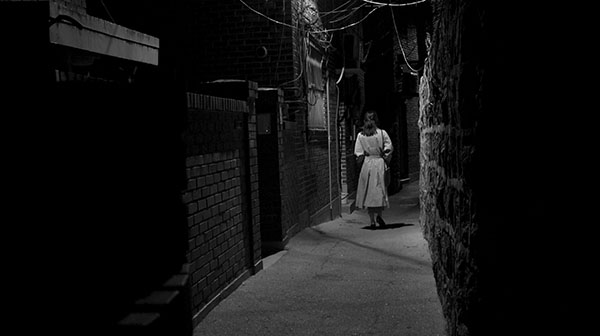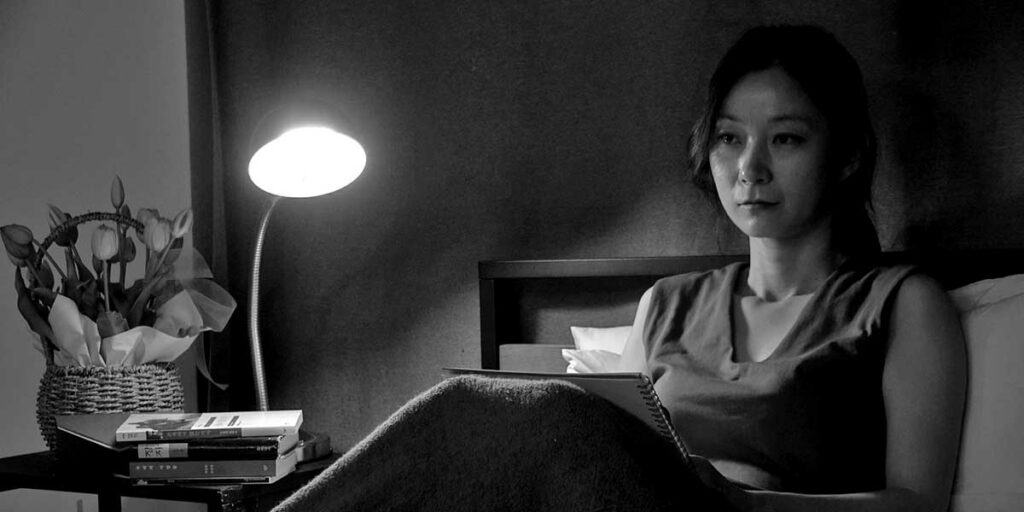Regardless of Us is attractively sparse in form, but the film is stripped of a serious amount of dramatic engagement due to a flimsy screenplay.
In Yoo Heong-jun’s perplexing feature length debut, Regardless of Us (Uriwa sanggwaneopsi), real life and fiction merge in fragmented fashion. With its stationary camerawork, dialogue-heavy scenes, and long shots, Yoo’s film plays out like a Hong Sang-soo fever dream, but it lacks both the humanistic foundations and thought-provoking value of Yoo’s fellow countryman’s work. There are a few fascinating channels running through Yoo’s film, and glimpses of cleverness and complexity, with interesting notions of existentialism, human selfishness, and immortalizing oneself within the world. The fine line between a film being minimalist or lifeless, however, is strikingly apparent as Regardless of Us.
Middle-aged actor Hwa-ryeong (Cho Hyunjin) recovers from a stroke in hospital, as friends and colleagues come to visit her. Regardless of Us is less experimental in these earlier stages in this the first of two parts, with simple one-take conversations taking place, centred around the wellbeing of Hwa-ryeong and how their new film was received. Dramatic tensions rise as we see these different characters interact with Hwa-ryeong. Little snippets of information about a crew member, for example, feed into the next scene when said crew member gives their side of the story. These extended scenes of dialogue are engaging to a point, but moments that reach for sharp wit or lofty philosophy fall mostly flat.
Regardless of Us gains more intrigue in the second part, as the film shifts to a nameless actor, also played by Cho, going about her daily life. Characters from the first part reappear, but their relationships are different, with everything subverted and open to interpretation. Yoo’s experimentation with film form is commendable and brave, but this merging of roles and constant shifting becomes extremely hard to follow. Ambiguity is no bad thing, but the filmprovides little substance for analysis; instead, it becomes esoteric to the point of alienation.

Regardless of Us occasionally clicks, and provides interesting thoughts on films and the power they hold to immortalize people. Cho’s characters in both parts of the film are dismissive of theatre – it “feels too fleeting”, she says at one point – and they instead prefer the big screen. From here, one can be remembered forever, anchoring oneself and one’s performance to celluloid.
Regardless of Us shines in these moments. Instances of strong visual lyricism, whilst few and far between, do crop up; the final shots of the film are particularly thought-provoking. However, Regardless of Us doesn’t give us enough of these moments of poetic clarity, which results in a mundane affair of no great profundity.
The film premiered at the Berlin Film Festival on February 17-26, 2023. Read our Berlin Film Festival reviews!

